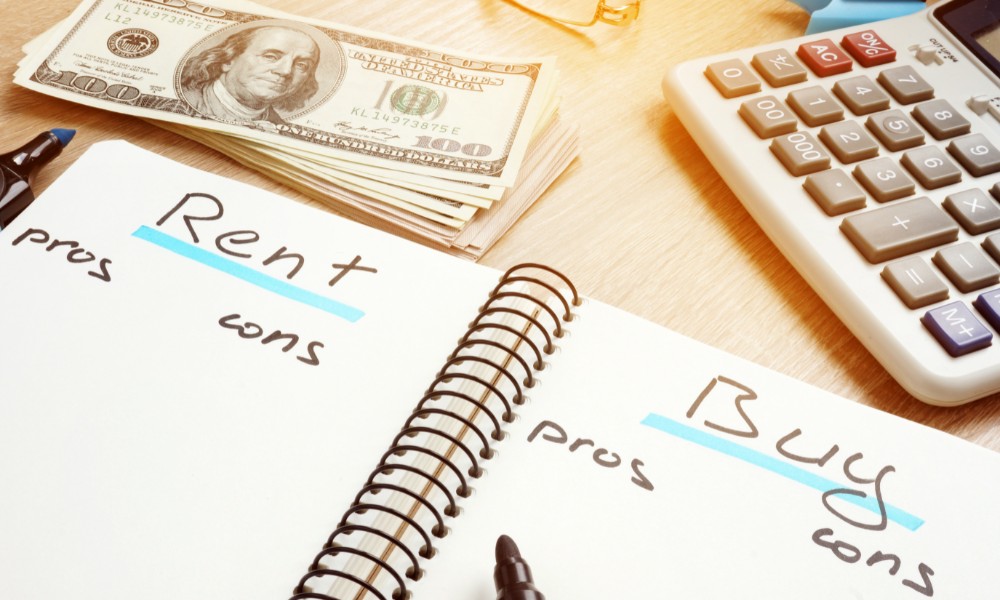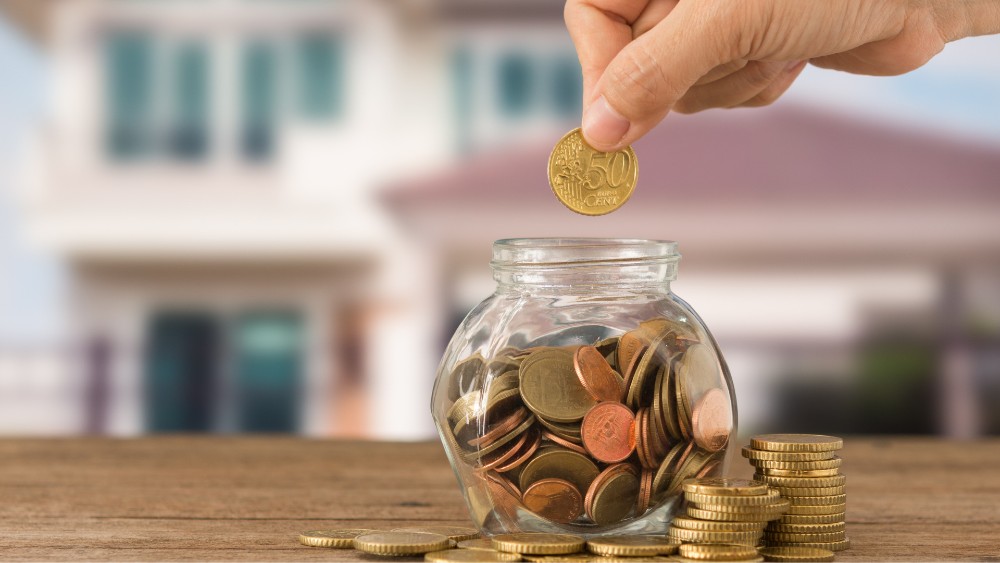One of the biggest decisions you’ll make in your life is whether to buy a home or not. You may have heard that buying a home is always a good investment, but this is simply not the case for some people. We’ve outlined a few advantages and drawbacks to buying and owning a home, and what you should consider before making this big decision.
Key Topics
Buying a home is one of the big milestones that people often feel they need to achieve by a certain time in their lives, and a solid part of the American Dream. However, before committing to this large purchase it’s worth asking yourself the question, is buying a house always a solid investment? We’ll take you through ins and outs of buying a home and help you decide whether it’s a worthwhile investment to make for you.

What do the experts have to say?
According to well-renowned personal finance author Robert Kiyosaki, a good investment is something that will pay you back more than you paid for it. When it comes to home buying, this isn’t a cut and dry rule to apply, because buying a home will cost you money every month as you pay off your loan, and your home continues to cost you as maintenance and repairs crop up, alongside taxes, insurance and so on.
Here’s the interesting part though, property usually appreciates in value, so while it may be costing you money every month, once it’s paid off you have equity in your home. However, this equity is now tied up in the property and not immediately available to you.
According to a Forbes Advisor survey, about 57% of the real estate experts that participated said that buying a house is a good investment, while 38% said that it depends on certain factors and only 5% said that buying a home isn’t a good investment. The result is that amongst real estate experts, home buying is widely considered a good investment, but it should be done under the right circumstances.

Why buying a home can be a solid investment
When it comes to buying property as an investment, you’re still looking at the same costs, but a tenant can cover most of these with their rental payment. Which means that you are spending less, or nothing if you’ve got your cash flow right, and the tenant can pay off your loan, taxes, insurance and repairs.
This method is a no-brainer when it comes to property being an asset, but it’s important to note that there may be periods of time when you don’t have tenants occupying your property, and you’ll need to have the cash flow to cover this. Factor this into your decision-making process, before you purchase a home as an investment.
Aside from the property investing side of things, owning a home for yourself can be a great decision to put roots down for your family, give you the pride of owning your own home and give you the freedom to make your house look exactly how you want it.
If you’re a big spender, buying a house could be a good option for you because it can be used as a way to save money. Some people think of buying a home like having a forced savings account, which ensures that you put your money towards an appreciating asset instead of blowing it on unnecessary or frivolous items.
Another major pro about buying your own home is that when you retire, if you’ve paid off your mortgage, you now have a big asset that you can leverage to support yourself with. You can either rent out the home, get a home equity loan or downsize into a smaller place and make a large profit. Either way, this equity can become liquid and used for whatever you may need.
According to the Federal Reserve’s 2020 Survey of Consumer Finances, homeowners often have a higher net worth than renters. In fact, homeowner net worth averages at 40 times more than renters. The financial responsibility that it takes to own a home includes saving for a down payment, paying off a mortgage and budgeting for homeownership costs, which all add to a wealth-building mindset. This mindset can be very useful to you for the rest of your life by helping you develop good financial habits.
For home buying to be a good investment, it needs to be timed right, so it’s crucial that your finances are in order before you make this decision. You’ll need to be able to cover the expenses associated not only with buying the home, but also the repair and maintenance costs, your day-to-day living expenses and any emergencies. Let’s take a look at what these costs are so that you can be prepared.
The real costs of buying and owning a home

The costs involved with buying a home don’t stop with the down payment and the mortgage. Closing costs alone can amount to anywhere between 2% and 6% (or more) of the purchase price. This is dependent on factors like the type of loan, the type of home, the location, and more. The mortgage interest rate is another cost to consider, which you’ll need to work out upfront.
Then there are the maintenance and repair costs that crop up often. Property taxes need to be paid every year, as well as homeowner’s insurance which can easily cost over $1000 per year. Sometimes homeowners need to pay private mortgage insurance, on top of this. These costs can easily add up to over $20,000 per year so it’s crucial that you factor this into your home buying decision.
When to avoid buying a home
The main factor that comes into play when buying a home is whether you’re financially ready to do so. If you cannot save up for a substantial down payment, or you’ll only just be making ends meet every month after buying the home, then this may not be the best decision for you. Similarly, if you’ve recently changed jobs or your financial situation is precarious, this probably isn’t the best time for you to be making a large purchase of this nature.
It’s all about timing, so buying a home during a buyer’s market is a good time to make this decision because there are more sellers on the market than there are buyers. However, if you try to buy a home in a seller’s market, you could end up paying too much for it, and the purchase isn’t a great idea.
It takes time to break even after buying a home, so for those who aren’t in it for the long haul, buying a house may not be the right move. It takes homeowners about 4 years on average, to break even after purchasing a property, however this can vary from person to person. This is quite a while, so factor this into your decision and don’t expect a quick recovery from the initial knock to your finances. If you plan on being in the home any less than 5 years, a general rule of thumb is to continue renting rather.
The location of the home is a huge factor, as some areas have lower appreciation values than others. So, buying a home in these areas, may not be wise because you could end up getting a lower return on your investment.
Buying a home isn’t always a solid investment because it isn’t necessarily a true investment unless you plan on buying it to rent it out. There are different schools of though on this, however buying a home to use as your primary residence is not always considered an investment, as some Millennials have come to discover thanks to the extra costs.

Millennials change the game
The Millennial generation entered the age group of being able to afford to live on their own in about 2008, which was right in the middle of the financial crisis. Since then, the housing market has not only recovered but bounced back even higher after the pandemic. However, the trend amongst many Millennials is to continue renting, instead of buying a home.
A good example is to look at homeownership statistics, which show that Millennials aged 25-34 are 8% lower than Baby Boomers at the same age. One of the contributing factors to this trend is that Millennials are often stuck with major student loan debts, however another factor is that Millennials are quite happy to continue renting, and don’t feel the need to purchase a home as a matter of achieving a milestone. This trend is certainly influencing the thinking of homebuyers across the nation.
Making your decision
Ultimately, the home buying decision is a very personal one and depends on you and your particular circumstances and financial situation. For some, buying a home can be a solid investment, for others, it might not be the best decision. But we hope that you feel more confident that you can make the right decision now, from a place of information and clarity.

